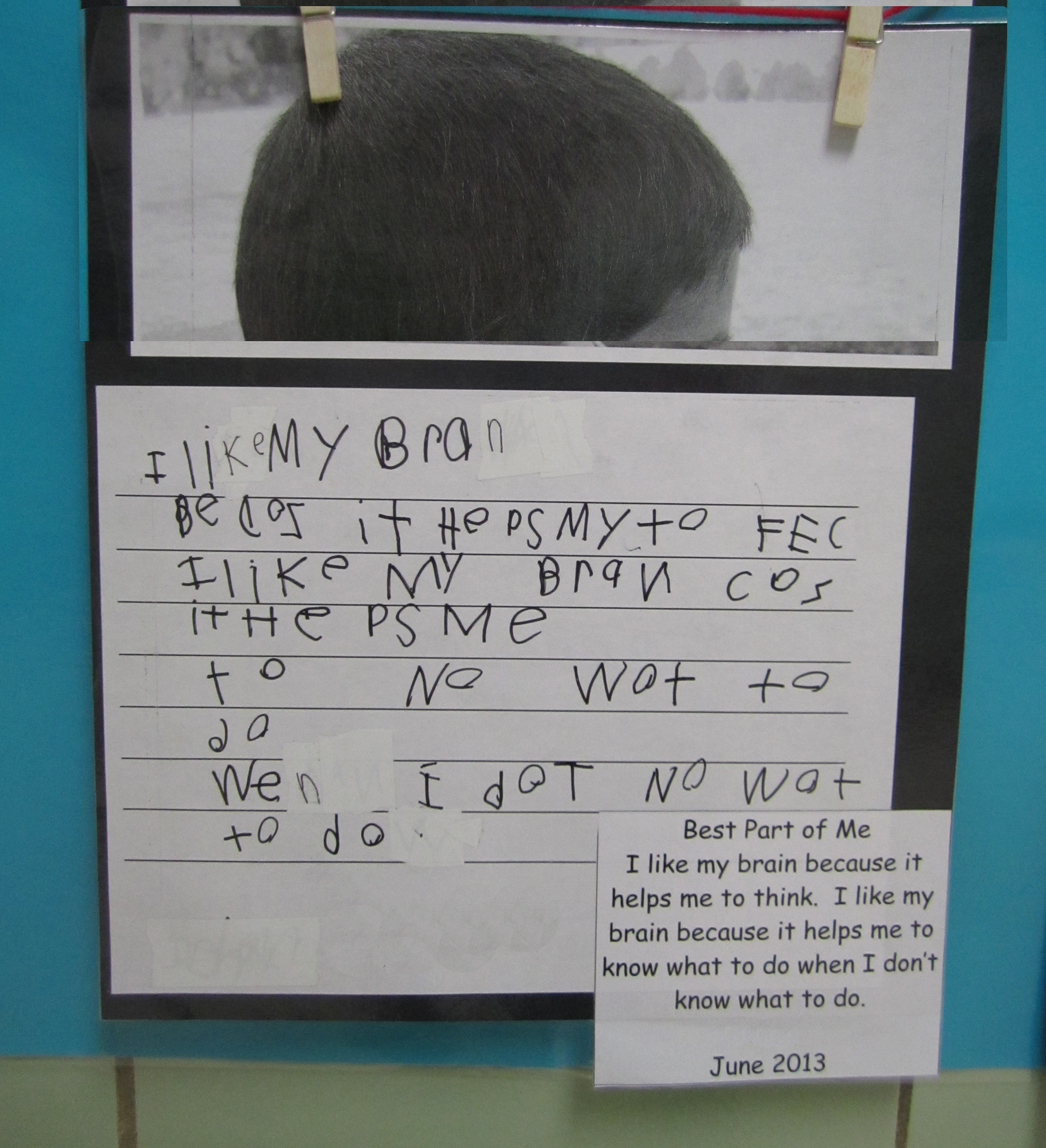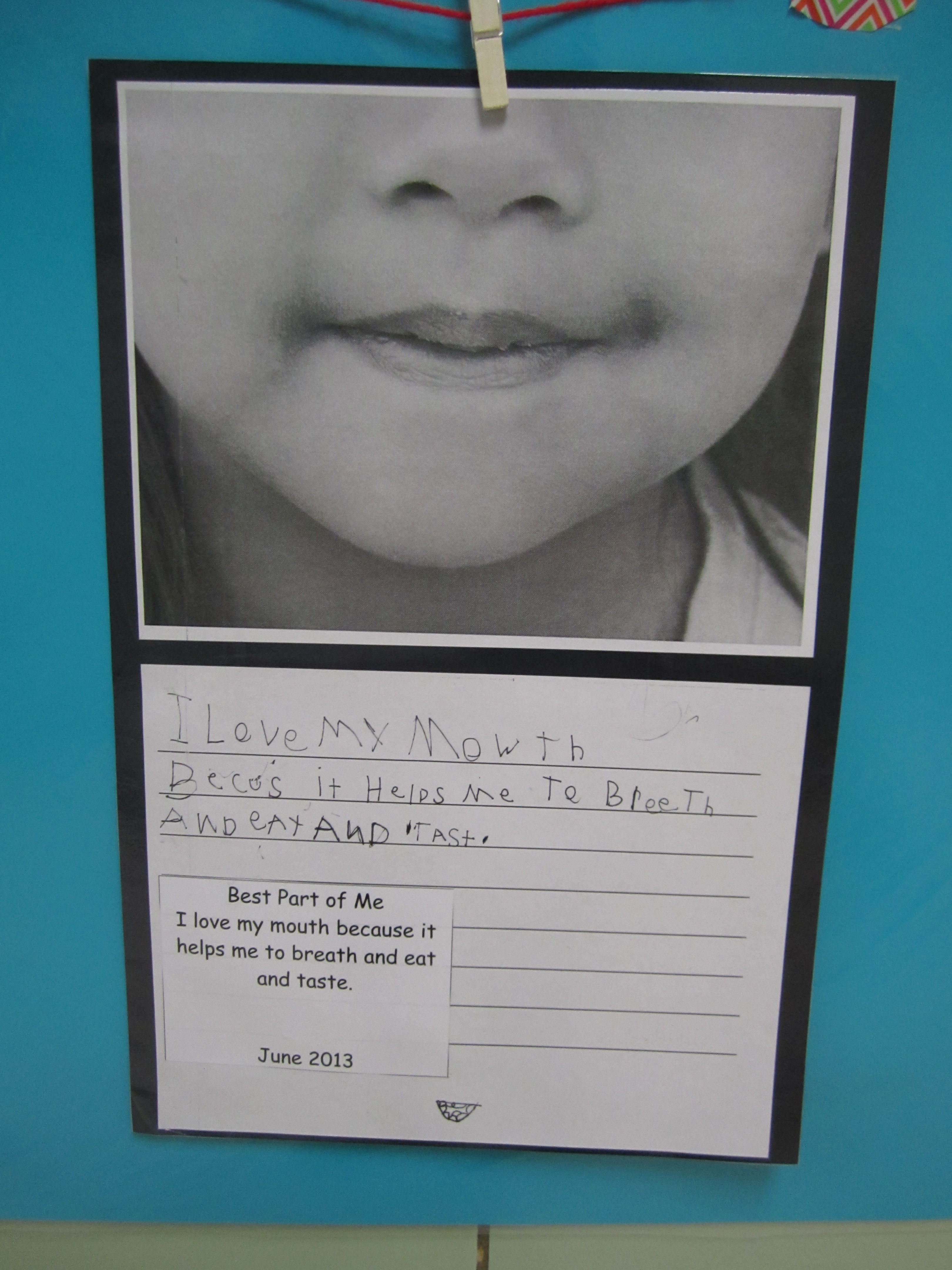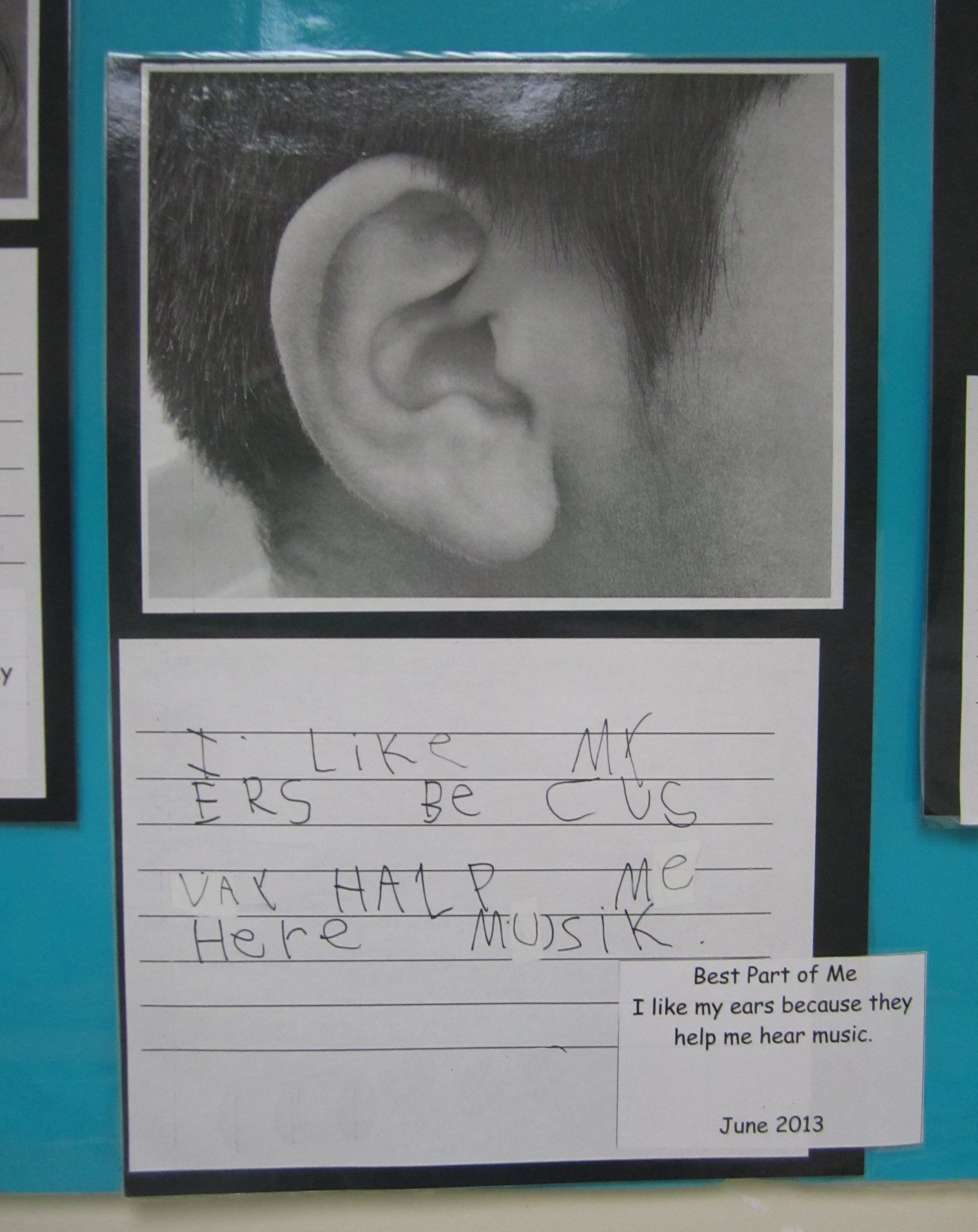Reflections on the year and connections for moving forward
By Peggy Ashbrook
Posted on 2014-06-08
 Even if your program is moving to a new location over the summer, or you are beginning your summer job as soon as your school year job ends, you will probably find yourself reflecting on the past year. It is revealing to compare the children’s end of the school year self-portraits with those made in the first week of the school, to see students’ growth in understanding, and representing, themselves. I love to see what they thought was important to share about themselves. I reflect on how I grew over the year, past my first impressions about them:
Even if your program is moving to a new location over the summer, or you are beginning your summer job as soon as your school year job ends, you will probably find yourself reflecting on the past year. It is revealing to compare the children’s end of the school year self-portraits with those made in the first week of the school, to see students’ growth in understanding, and representing, themselves. I love to see what they thought was important to share about themselves. I reflect on how I grew over the year, past my first impressions about them:
Will that two-year-old ever be able to separate from his parents without tears?
Wow, that child is shy!
With those fancy clothes and shoes she’ll never want to engage in rough-and-tumble play.
Will this rambunctious child always be a disruption in circle time?
The two-year-old used the calm assurance of his teacher to build his understanding that parents come back and preschool is fun. Shyness turns out to be a preference for self-directed play where she is in charge. Fashion plate style does not keep a girl from running, rolling and sliding. The rambunctious child turns out to be the champion rule-follower once the class discusses their rules at circle time.
It can be satisfying to reflect on my own year too. Did I meet my goals, and how have I grown? Have I allowed new information to inform my understanding of the children, each week? What current research in early childhood education will help me consider my practice in a new light, keeping what works and revising what doesn’t? Where has my work supported others in early childhood? What have been some of the best parts of my school year?
I didn’t meet my goal of visiting other early childhood classrooms. I could more intentionally reflect on the development of the children to see how my weekly visits can best support them. I learned much (and need to continue to review the materials) from trainings on The CLASS Tool (Classroom Assessment Scoring System) and mentoring, and the MOOCs (Massive Open Online Class) I participated in on effective classroom interactions and coaching. My work in the NAEYC Early Childhood Science Interest Forum has supported our goals of promoting collaboration between NAEYC and NSTA (EC Science Education position statement!) and providing professional development in science education. My work continues to be a joy.
Reading about others’ work is also enjoyable. I look for online sites where I can learn how other educators address challenges and what resources they recommend. Analysis of policy and research gives me a broader view of the profession, beyond the classroom. I “visit” to view children at work and hear how teacher-student conversation builds children’s understanding and skills. The practical tips for handling “stuff” and new uses for materials they offer make my work easier. These writings and photographs help me set goals for my teaching. And the humor is much appreciated! Here are a few of the blogs I read to be part of a larger community. Some may not be currently updated but I search the archived content to learn other ideas on “who,” “how,” “what,” “why” or “when.” Reading them is like a window into another program although it is not a view of the entire classroom. This NSTA Early Years blog welcomes readers to post comments, including links to their sites that discuss any aspect of early childhood education. Does your Pinterest page have text to explain your thinking about the lovely photos? Do you write about your teaching practice? Is there a site with research into early childhood learning, or policy, that you rely on? Share!
An incomplete list:
Education Week, Early Years. Education Week staff writer Christina A. Samuels provides insight, news, and analysis on early-childhood education.
http://blogs.edweek.org/edweek/early_years/
Go Beyond the Classroom. One-minute videos for inquiry learning.
http://gobeyondtheclassroom.com/
Pondering Preschool by a teacher of 3-year-olds, “a dwelling place for my enthusiasm about ‘all things early childhood.’”
http://myiearlychildhoodreflections.blogspot.com/
Scoop It Kindergarten. News from an early childhood perspective, curated by Gail Poulin. Lots of links to blogs too.
http://www.scoop.it/t/kindergarten
Thinking BIG Learning BIG Facebook page. Inspiring photographs of 4 and 5-year-old children engaged in learning through play.
https://www.facebook.com/thinkingBIGlearningBIG
Videatives blog. Free views and discussion of commercially available video clips: “make children’s thinking visible through the use of short video clips with supporting text.”
http://videatives.com/blog/
Just a short list—make it longer by suggesting your favorite online information sites and blogs that promote and reflect on developmentally appropriate early childhood education practices, policy, research and humor.
Disclaimer: The views expressed in this blog post are those of the author(s) and do not necessarily reflect the official position of the National Science Teaching Association (NSTA).





